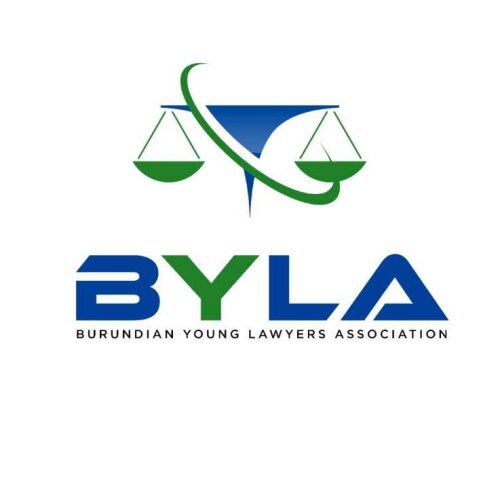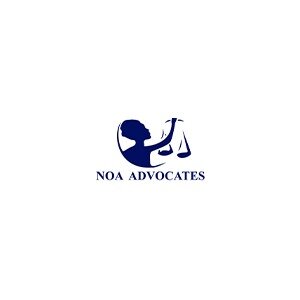Best Water Law Lawyers in Bujumbura
Share your needs with us, get contacted by law firms.
Free. Takes 2 min.
List of the best lawyers in Bujumbura, Burundi
About Water Law in Bujumbura, Burundi
Water Law in Bujumbura, Burundi governs how water resources are managed, allocated, and protected within the region. Burundi’s approach to water regulation is rooted in both customary practices and formal legislation. Given Bujumbura’s status as Burundi’s largest city and its proximity to Lake Tanganyika, issues such as water allocation for drinking, agriculture, and industrial use are of special importance. Water Law covers surface water, groundwater, pollution controls, water supply, sanitation, and the management of conflicts related to water use. The legal framework seeks to balance the needs of urban populations, agricultural users, and the protection of natural ecosystems.
Why You May Need a Lawyer
Legal guidance in Water Law can be crucial for individuals, businesses, and organizations facing water-related issues in Bujumbura. Some common scenarios where legal help is important include:
- Disputes over water access or usage rights between neighbors, businesses, or communities
- Issues arising from water pollution, such as contamination of drinking water sources
- Challenges related to permits for drilling wells or drawing water from rivers and lakes
- Negotiating contracts for the supply or purchase of water for agricultural or industrial needs
- Dealing with penalties or enforcement actions from government authorities for alleged violations
- Concerns about equitable distribution of municipal water supplies
- Conflicts arising from government or developer water projects affecting private or communal rights
A lawyer can help interpret complex laws, represent your interests in disputes, and ensure compliance with regulatory procedures.
Local Laws Overview
In Burundi, Water Law is primarily governed by the national Water Code and relevant ministerial decrees, along with municipal ordinances applicable in Bujumbura. Key aspects include:
- Public Ownership of Water: The state owns all surface and groundwater, but users may obtain permits or concessions for specific uses.
- Permitting System: Extraction of significant quantities of water or alterations to water courses generally require government permits.
- Priority of Use: Drinking water and domestic uses are prioritized, followed by agricultural use, then industrial and other needs.
- Sanitation and Pollution Control: Legal standards regulate wastewater disposal to prevent environmental harm.
- Customary Rights: Recognized customary practices continue to influence access and use, especially in peri-urban and rural areas.
- Conflict Resolution: Disputes may be settled by administrative authorities, courts, or through mediation.
- Community Management: Local water user associations may play a role in small-scale water supply management.
The legal framework is designed to align with sustainable development principles and Burundi’s national policies on water resource management.
Frequently Asked Questions
What is the main law governing water resources in Burundi?
The primary law governing water in Burundi is the Water Code, supplemented by ministerial regulations and municipal ordinances in cities like Bujumbura.
Who owns the water sources in Bujumbura?
All water resources, including lakes, rivers, and groundwater, are owned by the state for the benefit of the people. Individuals or organizations must obtain permission to use water for specific purposes.
Do I need a permit to drill a well or use river water?
Yes, extracting large amounts of groundwater or surface water typically requires a permit from the relevant water authority or the Ministry responsible for water management.
Can traditional/customary water users lose access if a new permit is issued?
Customary users are generally recognized, but conflicts can arise if new permits are issued for overlapping uses. Resolving such disputes may require legal intervention.
What should I do if my water source is being polluted by a neighbor or business?
You can report the issue to local authorities or environmental agencies. Legal action may be taken to stop the pollution and seek damages.
Are there special protections for Lake Tanganyika’s water resources?
Yes, Lake Tanganyika is protected by both national laws and international agreements to preserve its water quality and biodiversity.
How are water usage priorities determined in the event of scarcity?
Drinking water and basic domestic needs take priority, followed by water for food production, then industrial and recreational uses as allowed by law and permits.
Can a local community manage its own water supply?
Yes, local user groups and associations are often recognized and may be authorized to manage certain water resources, especially at a small scale.
What penalties exist for illegal water use or pollution?
Penalties can include fines, suspension of permits, and in cases of serious violations, criminal prosecution.
How can a lawyer help me with a water dispute?
A lawyer can explain your rights, assist with negotiations or mediation, draft legal documents, and represent you before administrative bodies or courts.
Additional Resources
If you need more information or assistance related to Water Law in Bujumbura, the following resources may be helpful:
- Ministry of Environment, Agriculture and Livestock: The main government agency for water resource management.
- Régie de Production et Distribution d’Eau et d’Electricité (REGIDESO): The national water supply and electricity company.
- Bujumbura Municipality Environmental Department: Handles local water-related issues and permits.
- Local Environmental NGOs: Such as Association pour la Protection de l’Environnement du Lac Tanganyika (APELT), which provides advocacy and information.
- Bar Association of Burundi: Offers contacts for qualified lawyers specializing in water and environmental law.
Next Steps
If you require legal assistance in Water Law in Bujumbura, consider the following steps:
- Gather relevant documents and information, such as permits, notices, and communication related to your water issue.
- Identify your specific concern, whether it is access, pollution, dispute, or compliance.
- Contact a qualified lawyer experienced in Water Law or environmental law matters in Burundi.
- Consult with local authorities or water user associations if the matter involves community resources.
- If necessary, seek mediation or file a complaint with the relevant administrative body.
Taking prompt action and obtaining professional legal advice can help protect your rights and ensure compliance with all relevant water laws in Bujumbura.
Lawzana helps you find the best lawyers and law firms in Bujumbura through a curated and pre-screened list of qualified legal professionals. Our platform offers rankings and detailed profiles of attorneys and law firms, allowing you to compare based on practice areas, including Water Law, experience, and client feedback.
Each profile includes a description of the firm's areas of practice, client reviews, team members and partners, year of establishment, spoken languages, office locations, contact information, social media presence, and any published articles or resources. Most firms on our platform speak English and are experienced in both local and international legal matters.
Get a quote from top-rated law firms in Bujumbura, Burundi — quickly, securely, and without unnecessary hassle.
Disclaimer:
The information provided on this page is for general informational purposes only and does not constitute legal advice. While we strive to ensure the accuracy and relevance of the content, legal information may change over time, and interpretations of the law can vary. You should always consult with a qualified legal professional for advice specific to your situation.
We disclaim all liability for actions taken or not taken based on the content of this page. If you believe any information is incorrect or outdated, please contact us, and we will review and update it where appropriate.












